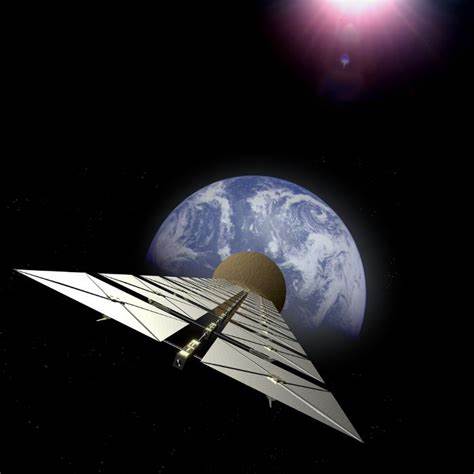NASA is reconsidering solar power plants in space

NASA is embarking on a study to re-examine the viability of harnessing solar energy in space, a long-advocated solution for providing energy from space that could attract new interest thanks to technological advances and pushes towards clean energy.
In a presentation at the National Space Society's International Conference on Space Development on May 27, Nikolai Joseph of NASA's Office of Technology, Policy and Strategy said the agency is embarking on a short-term study to evaluate the outlook for NASA. space solar energy, or SBSP, the first by the agency in about two decades.
“As technology has evolved, the feasibility of the system has changed over time,” he said. "This study will evaluate to what extent NASA should support space solar energy."
The study will not attempt to propose a new architecture for SBSP (the acronym for space-based solar energy), but will re-examine past concepts for collecting solar energy in space and transmitting it to earth to convert it into electricity. These upgraded systems will be compared with Earth's energy systems and the policy and implementation challenges they face will be assessed.
The costs of such systems, which have traditionally been a major obstacle in previous studies dating back to the 1970s, will also be examined. "It's going to be a lot of money, but money isn't the only determining factor," he said. "If the figure is huge and staggering, it might be fine."
Advances in several technical areas, Joseph said, give the agency a reason to at least re-examine the viability of SBSP. The biggest problem was the cost of launching the components, but advances in the technology of carriers brought this component down, making it possible to have an overall reassessment of the project.
NASA has been in discussions with the US Space Force and other "technical agencies" about the study, it said. There is currently no request for government grants through a formal request for information or other process, but has not ruled out doing so later. The goal is to finish the study and present it at the International Astronautical Congress in Paris in September.
There has been a resurgence of interest in SBSP in recent years, including a workshop held last December by the European Space Agency, which Joseph said NASA attended and led the agency to take consider your own study. Last year, the UK government included SBSP as a technology to explore alongside nuclear, wind and other energy systems.
Much of this interest is motivated by the desire for energy sources capable of meeting “net” carbon emissions targets to mitigate climate change.
"Even if it were to be assumed that space solar energy would not be cheap, the fact that we are losing the narrative by not trying to get something on a global agenda makes us look stupid," he said.
John Mankins, a longtime SBSP supporter who led NASA's previous studies on the subject, said that access to the "super cheap" space promised by vehicles like SpaceX's Starship changed the economy of that. system. "Transportation is no longer part of the cost equation," he said. "This makes space solar energy potentially accessible, depending on how you do it."
The energy produced in space has significant advantages. for example, light does not depend on atmospheric phenomena nor is it attenuated by the atmosphere, in addition to not occupying physical space on the surface. However, the problem of the transmission of the electrical energy produced to the ground still needs to be solved. However, these are interesting projects that,

Thanks to our Telegram channel you can stay updated on the publication of new articles of Economic Scenarios.
The article NASA is reconsidering solar power plants in space comes from ScenariEconomici.it .
This is a machine translation of a post published on Scenari Economici at the URL https://scenarieconomici.it/la-nasa-sta-riconsiderando-le-centrali-elettriche-solari-nello-spazio/ on Sat, 28 May 2022 20:20:12 +0000.
